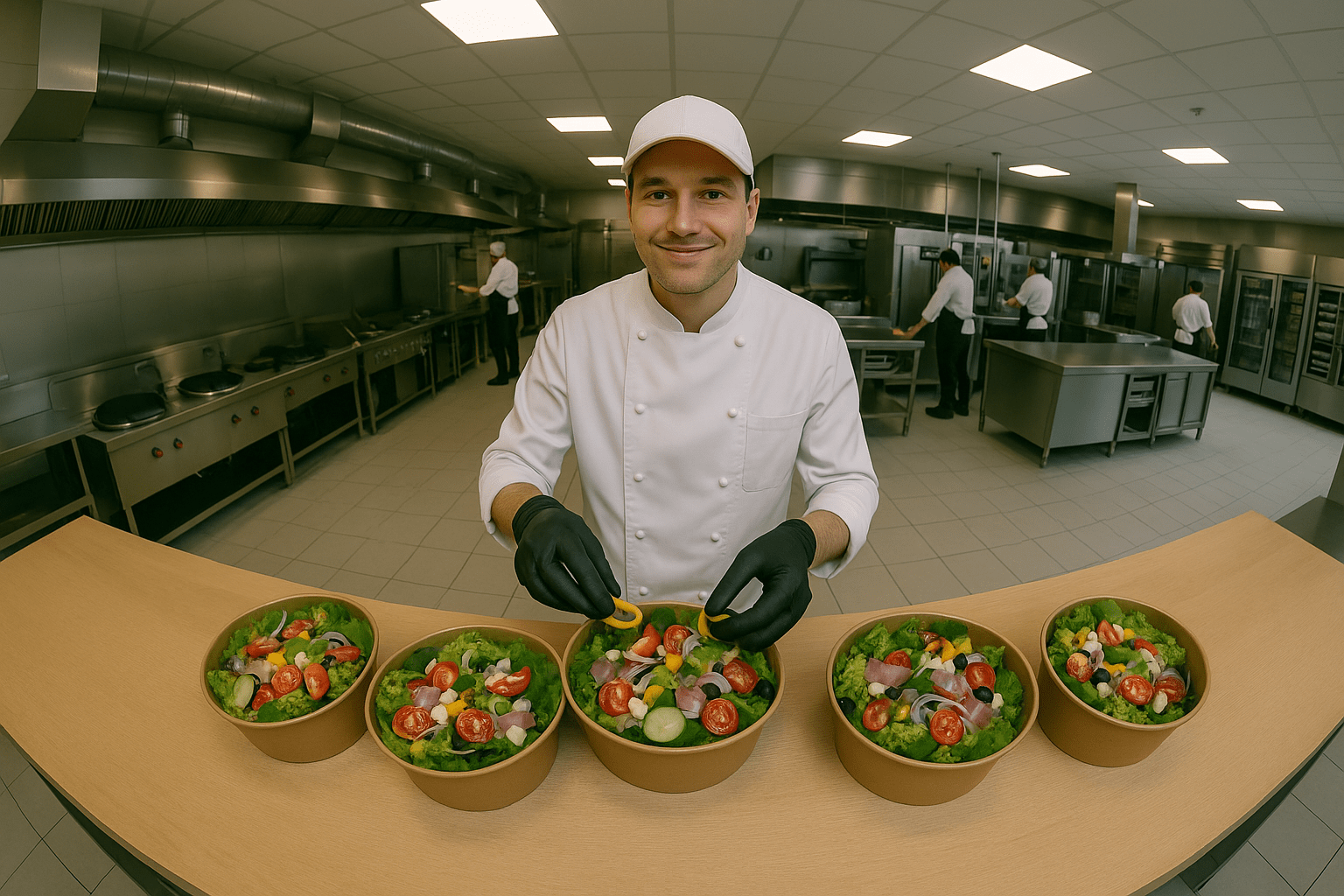
Challenges in system catering: Shortage of skilled workers & rising costs
Digitalization in system catering companies is no longer a future trend — it has become a decisive competitive factor. Increased energy costs, fluctuating food prices and the shortage of skilled workers are forcing companies to operate more efficiently and rethink how they work.
This is about much more than just a new cash register system or an app for orders. Modern catering solutions focus on the intelligent networking of all operational processes, from procurement of goods to personnel planning.
The potential for optimization is particularly evident during peak hours: When queues arise, employees are under time pressure and popular dishes are sold out, while there is little demand for other foods, smart technologies can alleviate these situations and contribute to smoother processes.
Tools for modern process optimization in system catering
Modern system catering solutions rely on intelligent networking instead of isolated individual solutions. The focus is on AI-based planning systems that automate operational decisions and provide data-based support.
AI-based production planning automatically creates sales forecasts for required quantities of individual items at a specific point in time. Instead of manual estimates, catering establishments receive precise recommendations on an ongoing basis as to when and how much should be produced. In this way, production and display can be optimally coordinated. For maximum freshness, satisfied customers and low food costs.
AI-based ordering systems automate the procurement of goods for each individual branch. The software suggests optimal order quantities and can even trigger them fully automatically. The forecasts enable optimal and precise order quantities for the warehouse, suppliers, central distribution points and administration.
What data flows into these systems?
- Sales history, order data, returns data
- Weather data, holidays and vacations, local events
- Any other data points such as: traffic data, strikes, ticket bookings, reservations, hotel bookings, student & student numbers
- Location factors and customer frequency
- Workforce planning and seasonal trends
- External influences such as construction sites
By combining these data sources, intelligent systems recognize complex relationships — for example, that there is more demand for hot soups when it rains or that school holidays influence lunch business.
Employees receive specific recommendations for action as to when and in what quantities should be produced or ordered. The systems adapt continuously and are played directly on tablets or terminals.
Modern catering solutions: These benefits are measurable
The implementation of digital planning systems brings measurable benefits at all levels of operation:
- Cost savings through waste reduction: Accurate sales forecasts significantly reduce overproduction. This not only reduces purchasing costs, but also disposal fees and improves the sustainability balance sheet.
- Sales increases through improved availability: If the right products are available in the right quantity, significantly more sales are generated, especially in bumps.
- Staff relief and increased efficiency: Thanks to automated planning processes, employees have to spend less time on administrative tasks and can concentrate on customer service and quality assurance. This is particularly valuable in light of the ongoing shortage of skilled workers.
- Improved work quality: Scheduled processes reduce stress due to shortages or overproduction and thus lead to more relaxed teams and better service quality.
- Scalability for chains: Through standardized, centrally controllable processes, proven planning models can be transferred to new locations and adapted to local conditions.
Digitalization as a competitive advantage: Seize the opportunity
Digitalization in system catering is no longer a nice-to-have, but a prerequisite for remaining economically efficient in the long term. Catering businesses that invest in digitization benefit in several ways:
- Cost reduction through less waste
- Increased sales through improved availability
- Relief for employees through automated processes
- Sustainability through optimized use of resources
Modern catering solutions are now user-friendly and can be implemented quickly. The best time for digital transformation is now — because efficient planning is becoming a decisive competitive advantage.

Increase your profits and relieve your staff - get in touch
With foodforecast, you can lead your company into a more sustainable future. Revolutionize your food production with us and minimize food waste. Our goal is to work together to achieve a positive impact on the environment, society and your profit.




.webp)